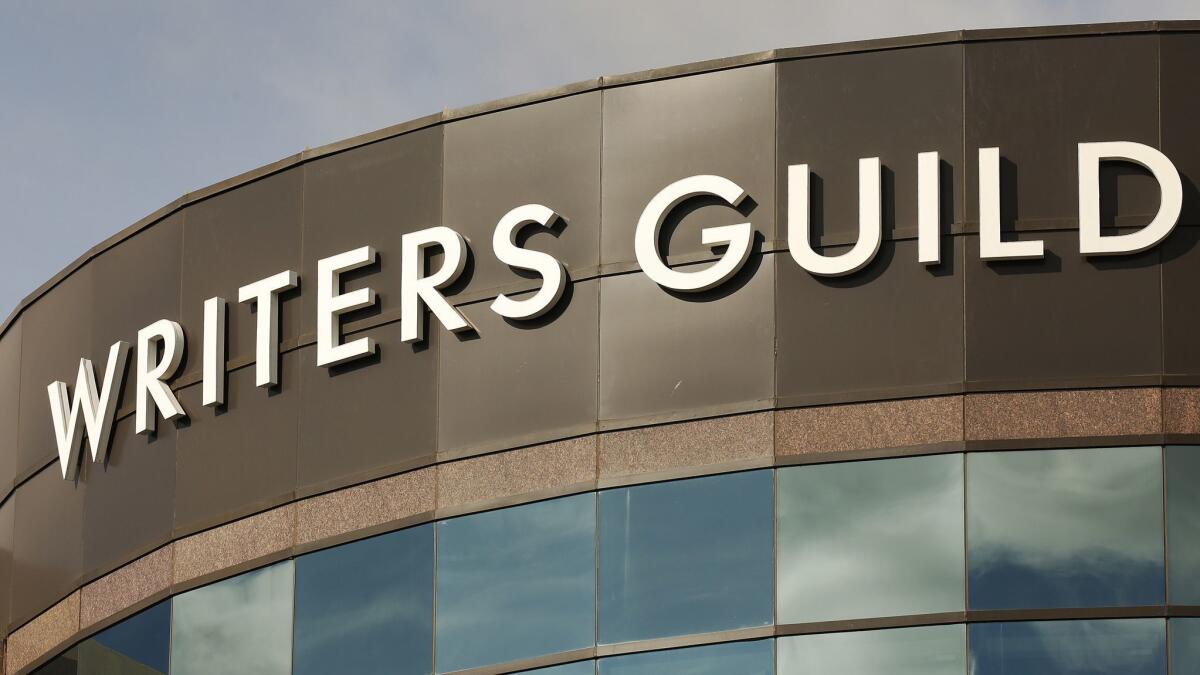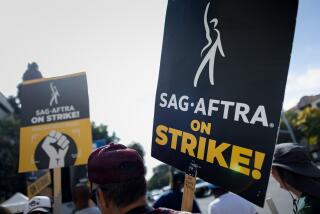Talent agencies blast writers: ‘This is not the way to get a deal done’

Talent agencies have come out swinging against Hollywood writers, accusing their guild of bad-faith negotiation as talks between the two sides appear to be headed for another stalemate.
In a statement issued Tuesday, the Assn. of Talent Agents criticized the leadership of the Writers Guild of America, saying that the guild hasn’t responded to agencies’ latest offer that was made 10 days ago, despite indicating that a response would come in a week.
“This is not the way to get a deal done,” wrote the negotiating committee for the ATA, the trade group that represents talent agencies.
“It has become clear as more days pass that the Guild is not interested in making a deal.”
The WGA issued a brief statement Tuesday afternoon: “The WGA plans to respond to the ATA proposal this week.”
The two sides last met June 7 in Beverly Hills, where the agencies offered to double the amount of revenue shared with junior TV writers who haven’t traditionally participated in profits of TV shows.
The ATA said guild negotiators led by President David Goodman didn’t ask any questions and left the room. After 2½ hours, the guild returned and indicated it would respond the following week. But no counteroffer has been made so far.
Talent agencies are battling Hollywood writers over a range of practices that the WGA believes are unfairly enriching agencies on the backs of clients.
At the center of the dispute are Hollywood’s four biggest agencies — CAA, WME, UTA and ICM.
The guild recently sued these agencies over packaging fees, a longstanding and highly lucrative practice in which an agency receives money for putting together talent on a TV show. Writers are arguing that agencies have prioritized packaging fees over traditional client representation, and that the fees are illegal under state and federal law.
The two sides are also fighting over so-called affiliate production — a newer phenomenon in which agencies have entered the production business, in effect turning themselves into studios.
Writers contend that affiliate production constitutes a conflict of interest if a writer is represented and employed by the same company. But agencies argue that they keep representation and production as separate business entities.
The two sides had their first round of negotiations in April. But talks broke down, with the WGA calling on its members to fire their agents. Since then, little progress has been made as the opposing parties have dug in their heels.
At the June 7 meeting, CAA co-chairman, Bryan Lourd, addressed the WGA delegation.
“Your actions as a guild, as disruptive as they have been, need to result in a deal,” Lourd said.
“If not, then the courts and dozens of lawyers will have to decide how we coexist. No one wants to go down that road, but we will if we are all forced to.”
More to Read
Inside the business of entertainment
The Wide Shot brings you news, analysis and insights on everything from streaming wars to production — and what it all means for the future.
You may occasionally receive promotional content from the Los Angeles Times.











